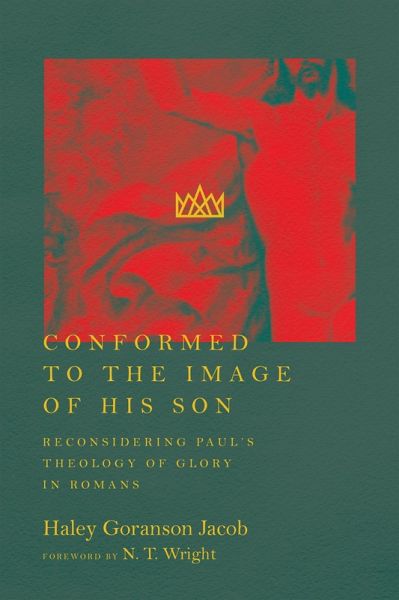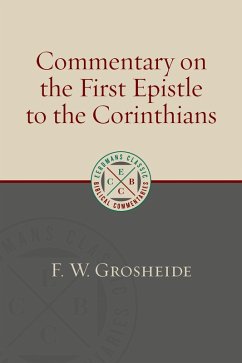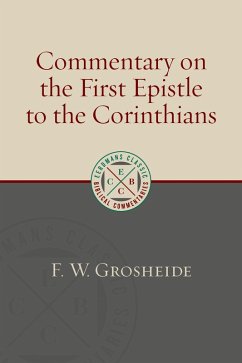
Conformed to the Image of His Son (eBook, ePUB)
Versandkostenfrei!
Sofort per Download lieferbar
27,95 €
inkl. MwSt.
Weitere Ausgaben:

PAYBACK Punkte
14 °P sammeln!
With its soaring affirmations and profound statements of salvation in Christ, Romans 8 is a high point in Pauline theology. But what does Paul mean when in 8:29 he speaks of being "conformed to the image of his Son"?Remarkably, there has been little scholarly attention awarded to this Pauline statement of the goal of salvation. And yet in Christian piety, preaching, and theology, this is a treasured phrase. Surprisingly, its meaning has been variously and ambiguously expressed. Is it a moral or spiritual or sanctifying conformity to Christ, or to his suffering, or does it point to an eschatolo...
With its soaring affirmations and profound statements of salvation in Christ, Romans 8 is a high point in Pauline theology. But what does Paul mean when in 8:29 he speaks of being "conformed to the image of his Son"?Remarkably, there has been little scholarly attention awarded to this Pauline statement of the goal of salvation. And yet in Christian piety, preaching, and theology, this is a treasured phrase. Surprisingly, its meaning has been variously and ambiguously expressed. Is it a moral or spiritual or sanctifying conformity to Christ, or to his suffering, or does it point to an eschatological transformation into radiant glory?In Conformed to the Image of His Son, Haley Goranson Jacob probes and reopens a text perhaps too familiar and a meaning too often assumed. If conformity to the image of the Son is the goal of salvation, a proper understanding is paramount. Jacob points out that the key lies in the meaning of "glory" in Paul's biblical-theological perspective and in how he uses the language of glory in Romans. For this investigation of glory alone, her study would be valuable for the fresh understanding she brings to Paul's narrative of glory. But in introducing a new and compelling reading of Romans 8:29, this is a study that makes a strong bid to reorient our understanding of Paul's classic statement of the goal of salvation.
Dieser Download kann aus rechtlichen Gründen nur mit Rechnungsadresse in A, B, BG, CY, CZ, D, DK, EW, E, FIN, F, GR, HR, H, IRL, I, LT, L, LR, M, NL, PL, P, R, S, SLO, SK ausgeliefert werden.













